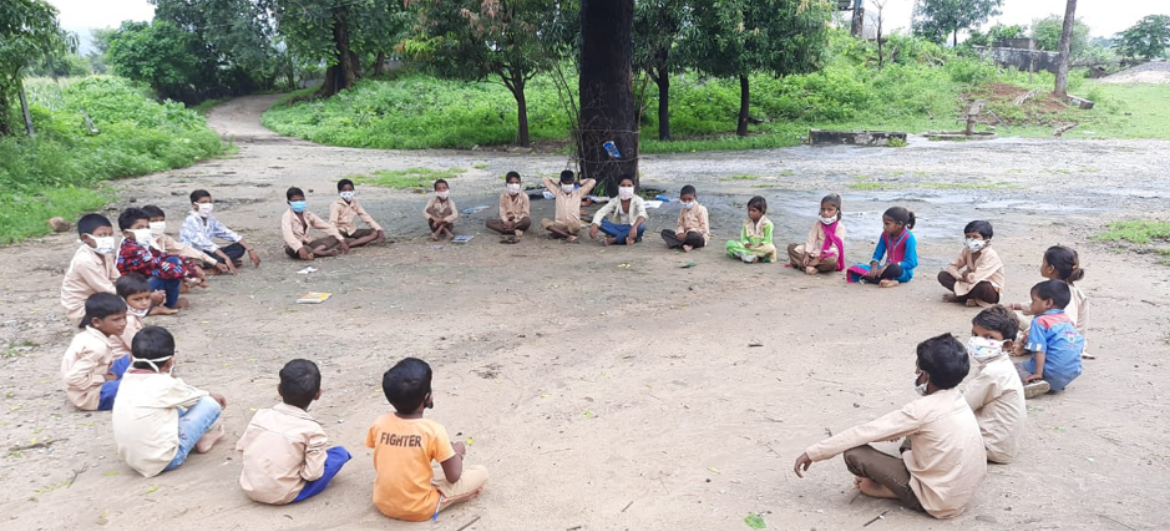Quis autem velum iure reprehe nderit. Lorem ipsum dolor sit nulla or narjusto laoreet onse ctetur adipisci.

Kshamtalaya
Supported by: Wipro
About Kshamtalaya
The lockdown imposed in the month of March 2020 to regulate the spread of the coronavirus resulted in schools and colleges shutting down across the world. According to a research by the UNESCO, about 320 million students have been affected by this shutdown. This also aggravated deep-set social and class differences in the country’s setup. With the entire world shifting to online and virtual means of teaching and learning, a minority of students attending urban private schools began seeing their education continue through standard digital platforms.
India has more than 6,00,000 villages and among them are the tribal-rural blocks of Kotra and Gogunda in the district of Udaipur, Rajasthan. In this geography, the access to smart devices, the presence and availability of the internet, electricity or even basic phone devices is extremely scarce. The mass initiative of online learning does not cater to the learning needs of the children here.
With this observation, understanding, and an intention of building connections, resilience, and a self-driven collective learning, we came up with the idea of radio learning. The radio shows are designed in a way that is meaningful, relatable, and contextual and creates opportunities for children to apply what they listen to, in their everyday lives. We began creating shows spanning over 30 minutes each to include mindfulness and thematic learning sessions that are mapped to their school curriculum.
New approaches adopted in response to COVID
Studies have demonstrated that teachers have “two to three times the impact” on their students’ academic performance, compared to other school-related variables, such as having modern facilities or having a range of school support services. The current times have expanded the role of a teacher to outside the classroom as well, with their requirement in COVID-19 related relief work. This brought us to a juncture of designing Hausla, a 21-day mental and emotional well-being program for teachers.
In Delhi, where we have been working with two municipal schools, we faced similar challenges with respect to reaching out to children and engaging them with their learning. Most children belonged to migrant families and had to travel back to their villages when the lockdown began. However, the children, who were in Delhi and were within our connectivity, were part of WhatsApp groups, which were used to facilitate the IAL learning content. When the lockdown was relaxed and communities became accessible, the team in Delhi responded by initiating community libraries, with the support of local youth who facilitated sessions with children.
To build continuity in children’s learning, to bring in an ownership of parents in the same, and to extend it to other families in the community, a Family Champions Fellowship program was initiated. Parents and family members of children were trained in divisions of cohorts, where their understanding and capacities were built on wholesome education, socio-emotional wellbeing, child safety, and digital literacy.

